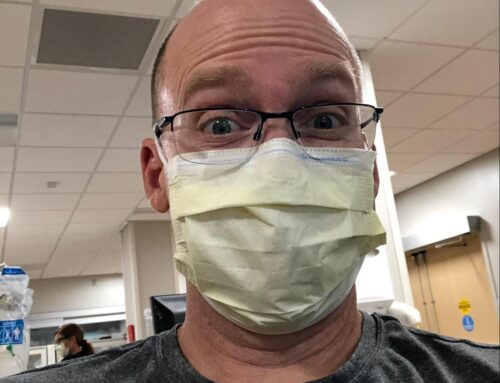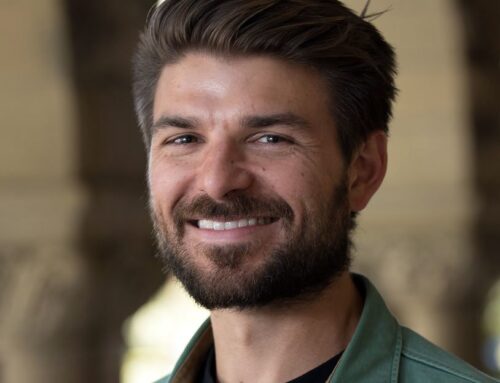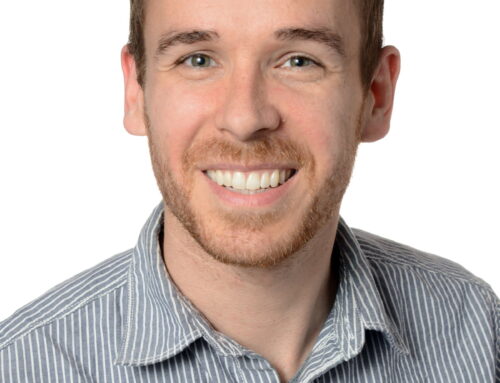Dr. Kathryn Dong (@kathryndong) is no stranger when it comes to keeping well! Currently, she is the Director of the Inner City Health and Wellness Program and the Addiction Recovery Community Health (ARCH) Team. She also keeps busy with her 3 boys, who keep her active and on her toes! Dr. Dong’s inspiring work with inner city populations, has given her a welcoming perspective on the value of community. Here, she shares her thoughts on how to maintain mental wellness and keep mentally in check. Take a look at how she stays healthy in emergency medicine!
- Name: Kathryn Dong

- Location: Edmonton, Alberta
- Current job(s): Mother of three boys ages 2, 6, and 8 years; Director of the Inner City Health and Wellness Program and the Addiction Recovery Community Health (ARCH) Team at the Royal Alexandra Hospital; Emergency Physician at the Royal Alexandra Hospital; Associate Clinical Professor, Department of Emergency Medicine, University of Alberta
- One word that describes how you stay healthy: Perspective
- Primary behavior/activity for destressing: Playing with my three boys!
What are the top 3 ways you keep healthy?
- Clear priorities. Having a clear idea of what is important to me (and not being driven by what is important to others, or what seems urgent in the moment) helps me to stay focused on the big picture. This ensures that I am only working on the things that are critical to my long-term goals and helps to keep my workload manageable.
- Living in the moment. Working in the emergency department is a constant reminder that life is short. I try to fully embrace each moment and give it my full attention. For me that means making sure my kids are well looked after when I am at work, so I can completely focus on providing the best care for my patients. It also means that I need to be able to leave work behind when I am home with my kids, so that they have my undivided attention.
- Being part of a community. Working in the inner city has taught me the power of community. I have met people who carry everything they own in a backpack, including a first aid kit they made out of left over supplies, just in case someone gets hurt. I have trained people to save the lives of their friends who have just overdosed when everyone is too scared to call 911. Being part of a group of people who do anything and everything to help each other out encourages me to worker harder and do my part.
What’s your ideal workout?
I have to say working full time and raising three kids does not leave much time for formal workouts! I hope that skiing, rock climbing, and hiking with three boys in tow (and/or being carried on my back) counts as exercise!
Do you track your fitness? How?
No.
How do you prepare for a night shift? How do you recover from one?
I haven’t done full overnights (in the hospital) since our second son was born. I do all the night time care of our kids at home and my husband works all the night shifts. I do work a lot of early morning shifts, though, and getting enough sleep is key! Sleeping around shifts has to be made a top priority.
How do you avoid getting “hangry” (angry due to hunger) on shift?
EAT! I don’t ever take enough of a break to eat a full meal, but I do eat throughout my shift. I bring bite-sized snacks that are easy to eat on the fly, like when I am stopping to check on a bunch of lab work. I also try to eat when I am listening to a student or resident present a case.
How do you ensure you are mentally in check?
This is an important one. Take care of your basic needs (eat, sleep, staying healthy). Take care of your family – your marriage, your kids, extended family, and friends. If these things are rock solid, you will be able to handle anything that life throws at you without losing your cool.
What are the biggest challenges you face in maintaining a longstanding career in EM? How do you address these challenges? Best advice you have received for maintaining health?
Maybe, for some people, emergency medicine is meant to be only part of a career path. I love emergency medicine, but for me what’s even cooler than doing an ED thoracotomy is preventing that person from getting stabbed in the first place. I run the Addiction Recovery and Community Health (ARCH) Team at our inner city hospital. This team helps our highest risk patients stabilize their substance use and also improve their social determinants of health. By working ‘upstream’ of the ED, I have the tremendous privilege of helping some of our regular ED users turn their lives around and take a different path.
Best advice you have received for maintaining health?
Health first, family second, work third (as told to me by Dr. Mike Bullard when I was a fifth year resident) – words to live by!
Who would you love for us to track down to answer these questions?
Corinne Hohl
Sarah Gray




